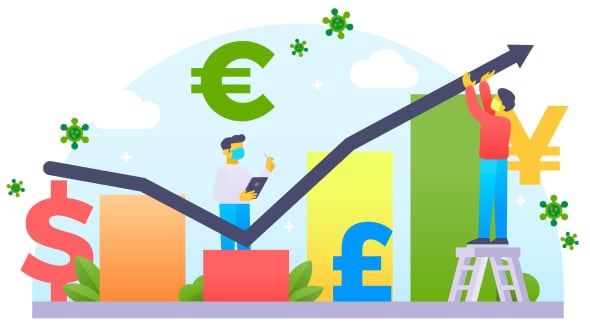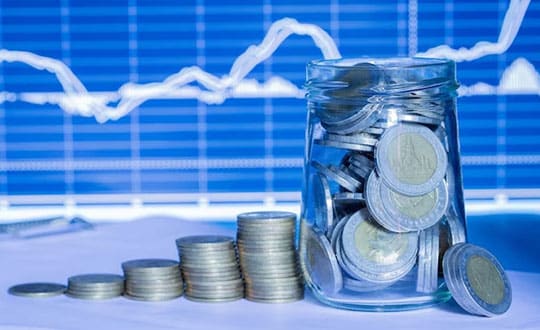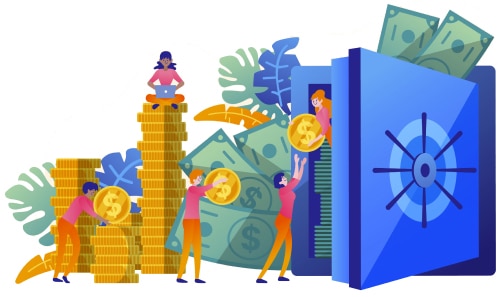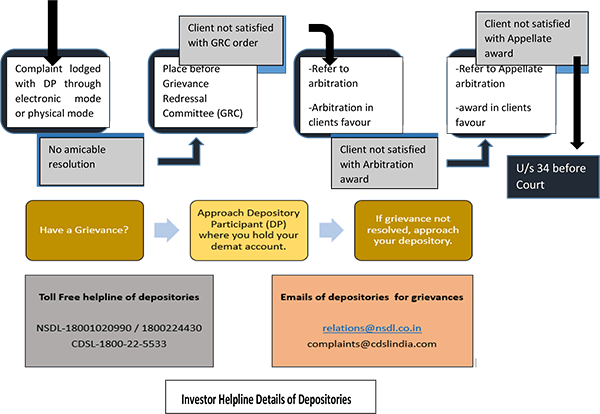Financial Instruments used to manage risk

Start Your Entrepreneurial Journey Now!
Understanding Currency Derivatives:A Guide to Managing Currency Risk
Forex (or Currency) market is the largest financial market in the world. With trading volume exceeding $6.6 trillion on a daily basis (as per BIS), forex overshadows even the stock market. Forex is an important aspect of global finance and plays a vital role in international trade and commerce. It also offers a lucrative platform for millions of investors & traders globally to deal in currencies. The most attracting feature of forex is that it allows you to trade anytime as per your convenience.
Right, the Currency market works 24 hours and 5 days a week, which is one of the primary reasons that make it one of the most attractive global platforms.
However, Currency market can be a lucrative endeavor, but it also carries a significant amount of risk. In fact, it is one of the fastest and most volatile financial markets to trade.

Currency Derivatives
Currency derivatives are financial instruments that are used to manage risk, speculate on future price movements, or hedge against unfavorable movements in the underlying currency. They include futures contracts, options contracts, and swaps. These instruments are widely used by businesses, investors, and traders who are involved in international trade and investment.
Futures Contracts
A futures contract is an agreement between two parties to buy or sell a specified currency at a predetermined price and date in the future. Futures contracts are standardized, exchange-traded contracts that require both parties to fulfill their obligations. This means that the buyer is obligated to purchase the currency at the agreed-upon price, and the seller is obligated to deliver the currency at the agreed-upon price.
Futures contracts are often used by businesses to hedge against currency risk associated with international trade.
Example
Suppose an Indian company is expecting to receive payment of 1 million US dollars in six months from a US customer for goods that it has already shipped. The current exchange rate is 1 USD = 74.50 INR. However, the Indian company is concerned that the exchange rate may weaken over the next six months, reducing the value of the payment in INR. To hedge against this risk, the Indian company could enter into a futures contract to sell 1 million US dollars in six months at a predetermined exchange rate of 75.00 INR/USD. This would ensure that the Indian company receives 75 million INR regardless of the exchange rate at the time of payment.
Options Contracts
An options contract is an agreement between two parties that gives the buyer the right, but not the obligation, to buy or sell a specified currency at a predetermined price and date in the future. The buyer of an options contract pays a premium to the seller for this right.
Options contracts are used by businesses and investors to manage currency risk and speculate on future price movements.
For example:
Suppose a Indian investor holds shares of a US-based company and is concerned about the impact of currency fluctuations on the value of their investment. The investor could purchase a put option on the US dollar with a strike price of 74.50 INR/USD (the current exchange rate) and an expiry date of six months from now. If the exchange rate drops below 74.50 INR/USD in the next six months, the investor could exercise the put option and sell the US dollars at the higher strike price, mitigating the loss on the investment.
Swaps
A swap is an agreement between two parties to exchange one currency for another at a predetermined rate on a predetermined date in the future. Swaps are often used by businesses to manage currency risk associated with international trade.
For example:
Suppose an Indian company is planning to expand its business to the US market and will need to convert INR to USD to make investments in the US market. However, the company is concerned about the impact of currency fluctuations on its profitability. To hedge against this risk, the Indian company could enter into a currency swap with a US-based financial institution. Under the swap agreement, the Indian company would exchange INR for USD at a predetermined exchange rate, and the US-based financial institution would exchange USD for INR at a predetermined exchange rate on a future date. This would ensure that the Indian company could make its investments in the US market without worrying about currency fluctuations impacting its profitability.




